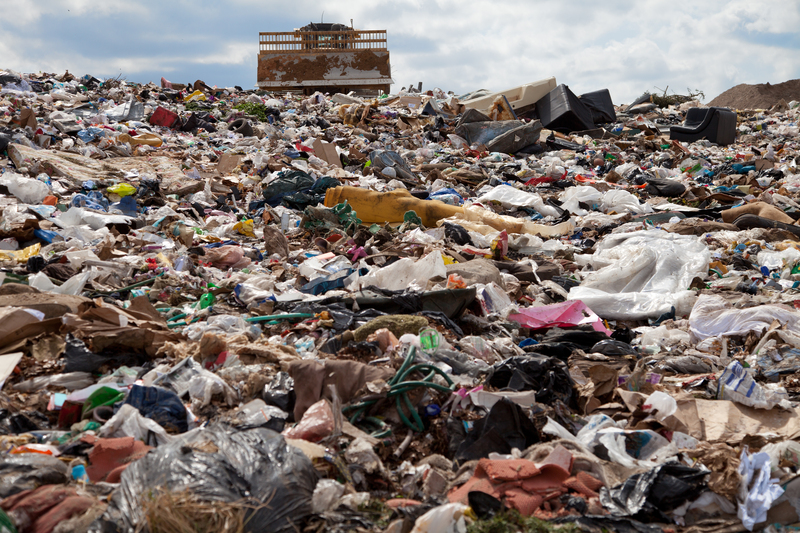Sustainable Moves for a Waste-Free Home: Transform Your Living Space Responsibly
With climate change and environmental degradation dominating global conversations, many are seeking practical ways to minimize their own ecological footprint. One impactful solution is adopting a waste-free lifestyle at home. If you're interested in sustainable moves for a waste-free home and are eager to make a difference, this in-depth guide is tailored just for you.
What Is a Waste-Free Home?
The concept of a waste-free home involves consciously choosing practices and products that minimize, or better yet, eliminate waste. This includes reducing single-use items, reusing resources, recycling responsibly, and opting for sustainable daily habits. By embracing waste-free living strategies, you can drastically lower your household's environmental impact and contribute to a cleaner planet.

Why Make the Switch to Zero Waste Living?
- Environmental Protection: Every piece of waste we generate eventually ends up in landfills or oceans, polluting ecosystems and harming wildlife.
- Cost Savings: Sustainable choices often mean buying less and reusing more, saving you money in the long run.
- Healthier Living: Natural cleaning and personal care products often have fewer harmful chemicals than their disposable counterparts.
- Resource Conservation: Reducing consumption lessens the need for raw materials and energy to manufacture, ship, and process new products.
- Setting an Example: Your meaningful choices can inspire family, friends, and neighbors to adopt waste-free habits too.
Key Steps to Sustainable, Waste-Free Home Organizing
Transitioning to a sustainable lifestyle at home doesn't happen overnight, but with commitment and creativity, every household can make significant progress. Let's explore practical, comprehensive steps to achieving a waste-free household:
1. Audit Your Waste
Begin your journey by identifying what you throw away most in your home. Spend a week documenting all waste in each room, from the kitchen to the bathroom and office spaces. Look for patterns - are there any single-use plastics or food packaging items that consistently fill your bins? This waste audit will serve as your road map for change.
2. Reduce, Reuse, and Refuse
- Reduce: Only purchase what you truly need. This decreases production demand and limits the amount of waste created.
- Reuse: Opt for reusable containers, bags, water bottles, and other items to replace single-use plastic and paper products.
- Refuse: Politely decline promotional items, plastic straws, or excess packaging. Let businesses know sustainability matters to you.
Proactive decisions in these three areas form the foundation of a zero-waste lifestyle.
3. Composting: Turn Waste into Resource
Composting is an essential pillar of a waste-free home. Organic kitchen and yard waste, when composted, becomes nutrient-rich soil instead of methane-producing landfill matter.
- Set up a compost bin in your backyard or use a small indoor composter for food scraps.
- Compostable materials include fruit and vegetable peels, coffee grounds, eggshells, and yard trimmings.
- Avoid composting meat, dairy, or oily foods unless using a specialized system.
By composting, you actively close the loop on organic waste, enriching your garden and reducing greenhouse gases.
4. Sustainable Shopping for a Waste-Free Residence
Shopping consciously is crucial for waste-free home living. Here's how to align your buying habits with sustainability:
- Bring your own reusable bags and produce sacks.
- Purchase from bulk bins to avoid unnecessary packaging.
- Choose products with recyclable or compostable packaging.
- Support local farmers and artisans to reduce transportation emissions and packaging waste.
- Think before you buy: Ask yourself if you may already have something you can upgrade or reuse.
Every step towards more thoughtful consumerism contributes to a waste-free lifestyle.
5. Waste-Free Kitchen: The Heart of Sustainability
The kitchen is often the biggest contributor to household waste. Here are some sustainable moves for a waste-free kitchen:
- Store food in glass or stainless steel containers instead of single-use plastics.
- Use beeswax wraps or silicone covers to replace plastic wrap.
- Buy fresh produce without plastic packaging and opt for whole foods instead of processed, packaged items.
- Plan meals to reduce food waste and learn creative ways to use up leftovers.
- Start a kitchen compost container for scraps, then transfer them to your main compost pile.
Focusing on your kitchen is one of the most impactful sustainable moves for a waste-free home.
6. Eco-Friendly Cleaning and Laundry Practices
Many commercial cleaning agents are housed in disposable plastic bottles and contain chemicals harmful to both health and the environment. Make your home sustainably clean by:
- Making DIY cleaners using vinegar, baking soda, lemon, and essential oils.
- Choosing concentrated cleaning refills from brands that offer reusable containers.
- Using washable microfiber cloths, sponges, and mop heads instead of disposable alternatives.
- Laundry: Use eco-friendly detergent blocks or powders in recyclable packaging, and line dry clothes as much as possible.
Switching to sustainable cleaning methods cuts down on packaging, saves money, and can be gentler on your family's health.
7. Sustainable Bath and Beauty Routines
Personal care routines can be another major source of home waste. Sustainable living benefits your beauty regime too!
- Swap liquid soaps in plastic bottles for package-free bar soaps.
- Look for shampoo and conditioner bars.
- Choose bamboo toothbrushes and biodegradable floss.
- Reuse glass jars for storing DIY scrubs or lotions.
- Buy in bulk or refill containers at zero-waste stores if available.
Small changes to your personal care routine add up to substantial waste reduction over time.
8. Smart Recycling: Know Your Materials
Even on a journey to zero waste, certain materials will be inevitable. Being a responsible recycler is a key sustainable move for a waste-free home:
- Rinse and sort recyclables, following your local municipality's guidelines.
- Avoid wish-cycling - never toss items in the recycling bin unless you're certain they're accepted locally.
- Explore TerraCycle or similar programs for hard-to-recycle items (like pens, cosmetics packaging, or batteries).
Efficient recycling closes the resource loop, keeping unnecessary items out of landfill and oceans.
9. Waste-Free Home Office and School Supplies
The paper trail can be overwhelming, but home offices and kids' study spaces can also embrace waste-free moves:
- Digitize documents and take notes electronically.
- Reuse envelopes and folders; buy recycled paper for printing only when necessary.
- Choose refillable pens and pencils, and recyclable desk supplies.
- Shop at thrift stores for furniture or look for office supply swaps in your community.
Creating a zero-waste office at home boosts productivity and environmental integrity.
10. Sustainable Decor and Upcycled Furnishings
Fast furniture and disposable decor can generate significant waste. Embrace sustainable moves for a waste-free home with these decor tips:
- Choose quality, timeless pieces that will last generations.
- Shop vintage or secondhand before purchasing new.
- DIY upcycled projects - transform pallets into coffee tables, or jars into candle holders.
- Repurpose textiles as rags, cushion covers, or quilts.
Home decorating with sustainability in mind leads to a unique, waste-free living environment.
11. Involve the Whole Family
Transitioning to a sustainable, waste-free home is most successful when everyone is involved.
- Make it fun and collaborative--assign zero-waste household "missions" or eco-friendly challenges.
- Encourage children to recycle, choose reusable lunch containers, and create environmental crafts.
- Share your journey with extended family and friends; they may be inspired to join you.
Teaching sustainability early on helps build conscientious habits for future generations.

12. Essential Tools for a Waste-Free Household
Consider investing in or making the following items to streamline your mission for a zero-waste home:
- Cloth produce and shopping bags
- Bulk food containers
- Compost bin
- Beeswax wraps
- Rechargeable batteries
- Reusable coffee filter and water bottles
- Stainless steel straws and cutlery
Having the right tools on hand makes sustainable living more convenient and effective.
13. What Are the Benefits of a Waste-Free Home?
Adopting sustainable moves for a waste-free home brings lasting advantages:
- Cleaner living spaces -- with less clutter and reduced exposure to unnecessary chemicals.
- Decreased utility bills -- thanks to less waste generation and energy-efficient practices.
- Pride in green living -- knowing you're part of a positive global community.
- Encouragement for local businesses -- supporting those that prioritize environmental responsibility.
- Less contribution to landfills, pollution, and wildlife hazards.
14. Overcoming Challenges on Your Zero-Waste Journey
Navigating toward a sustainable, waste-free household isn't always easy. Common challenges include lack of local recycling infrastructure, limited access to packaging-free grocery stores, and sometimes, higher up-front costs for reusable goods. However:
- Start small and celebrate each achievement, such as eliminating single-use kitchenware or switching to natural cleaning products.
- Leverage online zero-waste communities for tips, swaps, and motivation.
- Remember: Progress, not perfection, is the goal.
Conclusion: Your Roadmap to a Sustainable, Waste-Free Home
Building a waste-free household is a journey of conscious decision-making and gradual habit changes that paves the way for a more environmentally responsible lifestyle. Begin with manageable steps--auditing your waste, composting, reusing, and sustainable shopping--and continue to grow your efforts room by room.
By embracing these sustainable moves for a waste-free home, you'll not only reduce your environmental footprint but also inspire others in your community. It's about making intentional choices--every day--and enjoying the satisfaction that comes with living lighter on the Earth. Start today, and create a cleaner, healthier, truly sustainable home for yourself and generations to come.